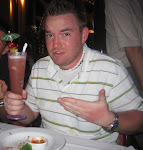
By Michael Stein
East Hampton has changed. There are more retail stores on Main Street than ever before. While the town of East Hampton is no stranger to commerce, the stores and shops have historically been varied. Where once was Barefoot Contessa, a prepared food store owned by Ina Garten, now stands a clothing store. Where Long Island Sound once stood (East Hampton’s sole record shop), now stands a clothing shop. Where Ralph Lauren now stands, there once was a toy store, complete with kid-sized Boogie Boards and dozens of kite varieties. Coach came. Tiffany’s came. The list goes on.
Was there a shadow committee of fashion-Nazis conspiring to make East Hampton a Mecca for Long Island shopping? Maybe. Though it’s highly unlikely.
Amongst other things I’ve noticed, Blue Point Brewing Company, the only Long Island brew I can buy in Virginia, has switched to twist-off bottle caps. Last summer I needed a church key to open their tasty IPA, Hoptical Illusion during a righteous beach drum circle in Watermill. This summer I could crack the beer with a flick of the wrist. “Who cares about such a subtle change?” You may ask. The truth is likely that not many care, but as a homebrewer I care. I choose to reuse my glass bottles.
Blue Point can no longer serve as a vessel for my homebrew; one beer and the brown glass goes into the blue bin. Some metropolitan restaurants, such as the newly opened Meridian Pint, have chosen to offer up their glass, in particular their 750 milliliters bottles to homebrewers. Such reusable methods are often overlooked but are of great interest to those wishing to reduce and reuse. While relatively “cheap” brand-new bottle sales can be found over the internet, many homebrewers choose to bottle in 750 ml bottles, if not for their “authentic” Belgian appearance, then for their gift-like presentation.
I wonder what the switch from sealed caps to twist-off means? Does it mean greater access? Could it mean that more beer can be consumed with a twist off cap? Certainly Bud Light, Coors Light and Miller Lite all have twist off bottle caps. Could it just mean the brewery is spending less on its bottling operation? Maybe. Chances are I’m reading too much into it.
I called Peconic Beverage in Amagansett, just to see how much a keg of Blue Point’s award-winning Toasted Lager cost. $180. A keg of Yuengling Lager? $92. Such is the parity, or lack there of, with Lagers. Such is the parity or lack thereof with macros vs. micros.
With all this talk of change on my recent vacation, it got me thinking back to my first year as a student in Selinsgrove, PA at Susquehanna University. Somehow our freshman Writing and Thinking class had gotten on the subject of beer. Professor Tom Bailey was discussing a recent visit to New York City (this was in 2002) Yuengling had been offered at a bar as a “standout beer.” At $5.00 a pint, the marketing of “standout” might have been offered as to account for the cost. Sure, Yuengling was tastier than Bud, Coors or Miller, but you could have a Bud Lite for $3 and then buy a Metro Card to take you to Brooklyn, the Bronx or Queens with your left over money (where beer would indubitably be cheaper). Professor Bailey was genuinely surprised at how pricey Yuengling had become. Of course at that time you could get a pint of lager in Selinsgrove for $2.50, before I knew the difference between macro, micro and nano breweries.
I’m not sure when Yuengling switched to twist off caps. But I know that when I first started drinking Lagunitas’ brew, they had a twist off cap. Now I’m finding more and more that their caps are pry off, which is of great benefit to me as a homebrewer. As most homebrewers agree, a pry off cap keeps a seal much better—over long periods of time—comparatively to a twist off.
What’s your experience with bottle caps? Can you recall a time when there was no such thing as twist off? Were you alive the time the “beer tab” was a handy dandy new invention? Perhaps it is the obsessive eye for detail, but we choose to discuss these differences in beers because in the end, I would argue, the better the homebrewer the more exquisite her/his attention to detail.









No comments:
Post a Comment